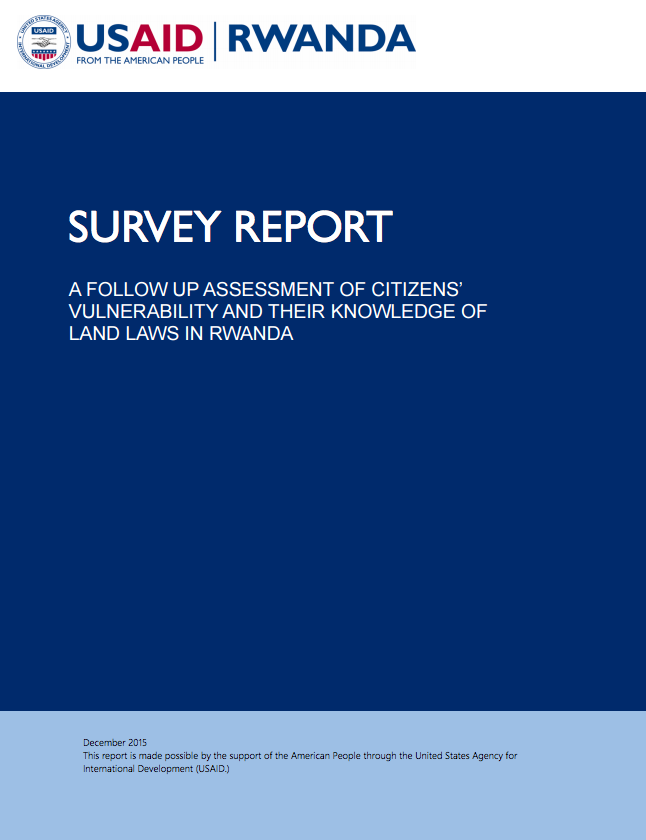Resource information
This report presents the results of a small scale household survey that was conducted in May
2015 to assess the extent to which rural Rwandan citizens are vulnerable or resilient to
environmental, market and land tenure risks and the level they understand the laws and rights
related to land. The report also compares the results of the survey with those from the baseline
survey conducted in May 2014, and seeks to inform the LAND Project of its progress in
achieving objectives entailed in the project’s results framework, namely:
1. Overall LAND Project Objective: Strengthened resiliency of citizens, communities, and
institutions and their ability to adapt to land-related economic, environment and social
change.
2. Objective 1, PIR 1: Increased understanding and use of land laws, regulations, and
judgments by local GoR officials, civil society organizations and Rwandan citizens.
Indicators to assess realization of these two objectives, respectively, are featured in the
project’s Monitoring and Evaluation (M&E) Plan:
Indicator: No 3: Percent of women and men in target districts who report that changes
in land-related policies and laws have reduced their vulnerability (e.g. to dispossession
from their land, encroachment, fluctuations in market prices, droughts, crop diseases,
etc.)
Indicator: No. 12: Percent of target population (women and men) who demonstrate
improved understanding of the law and their rights
The follow-up survey employed the same methodology used during the baseline survey, and
administered the survey to the same households that were randomly selected for the baseline
study. The purpose was to enable observation of changes (if any) in respondents’ experiences,
knowledge and perspectives that were examined in the initial baseline study.
The project aimed to survey the same 328 individuals from the 200 household interviewed in the
2014 baseline survey.1 However, only a total of 308 individuals could be surveyed since some of
the respondents relocated to far away regions, traveled or died. Given that the number of
original respondents who could not be interviewed did not exceed 10% of the intended sample,
the project is confident that the 308 repondents interviewed is a sufficient sample to measure
change over time.

